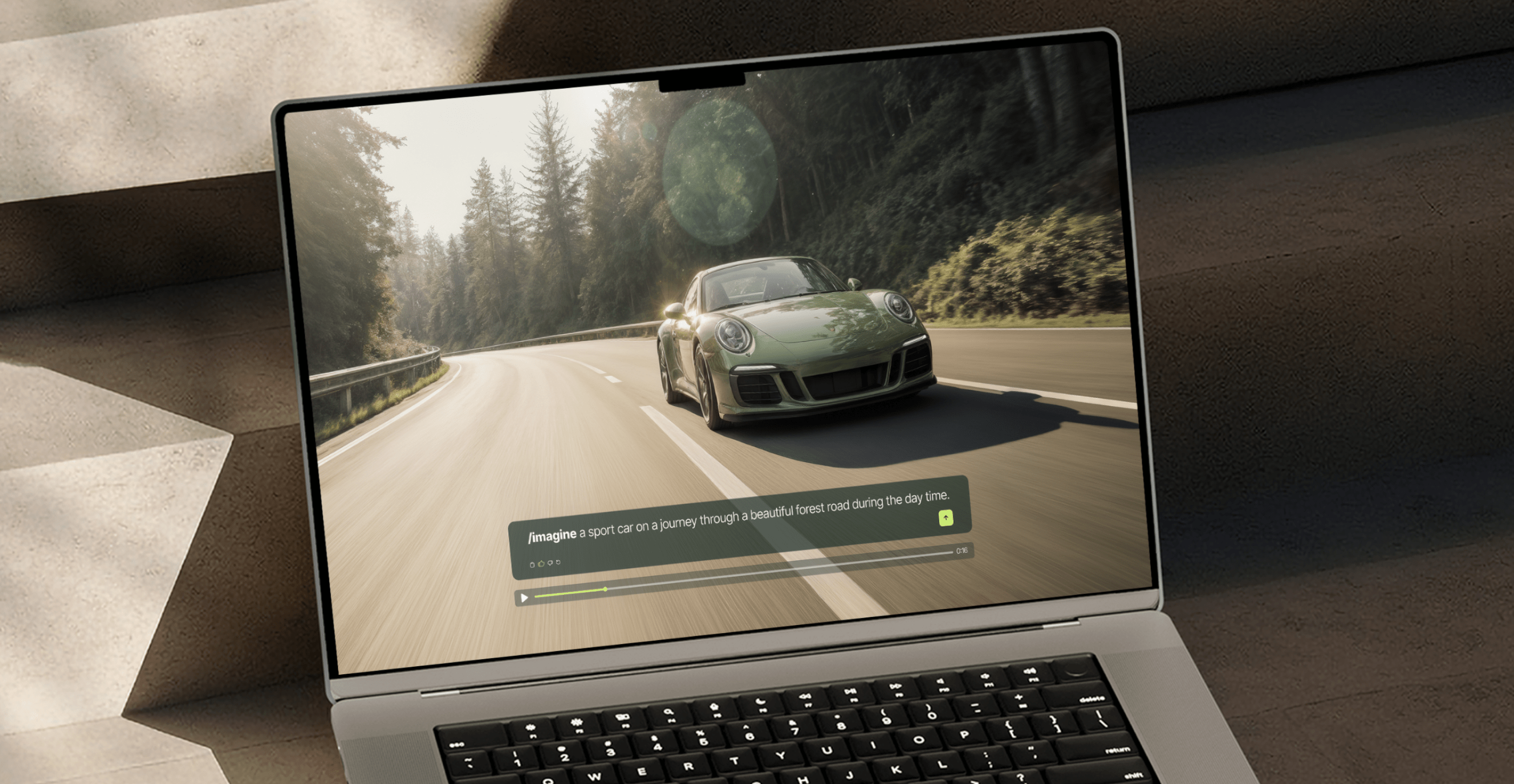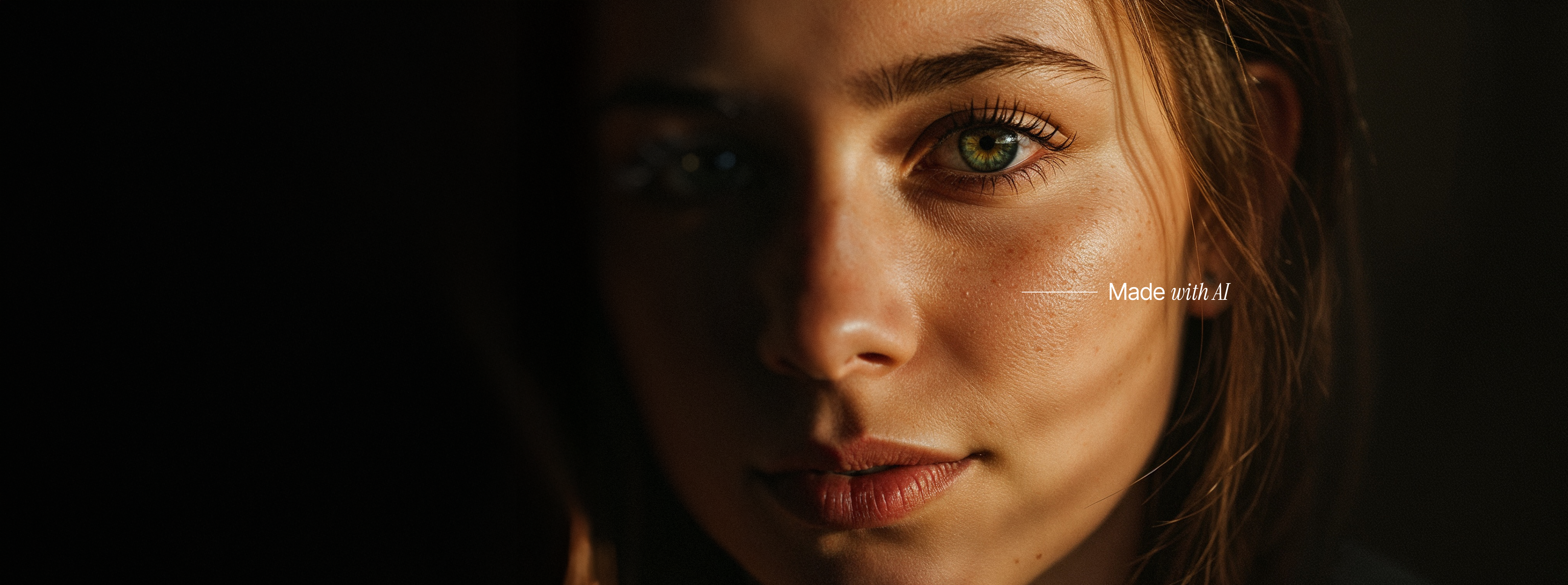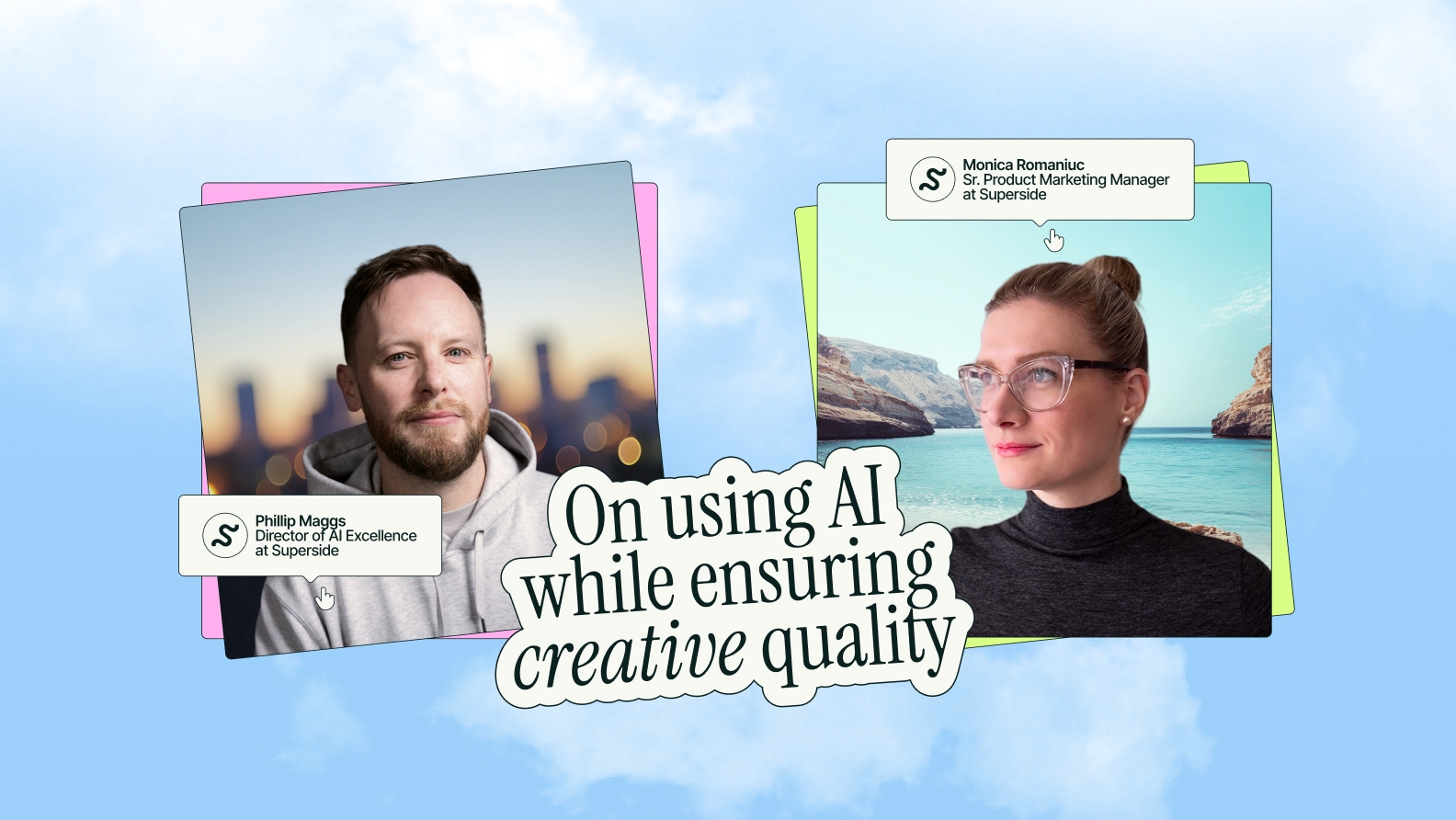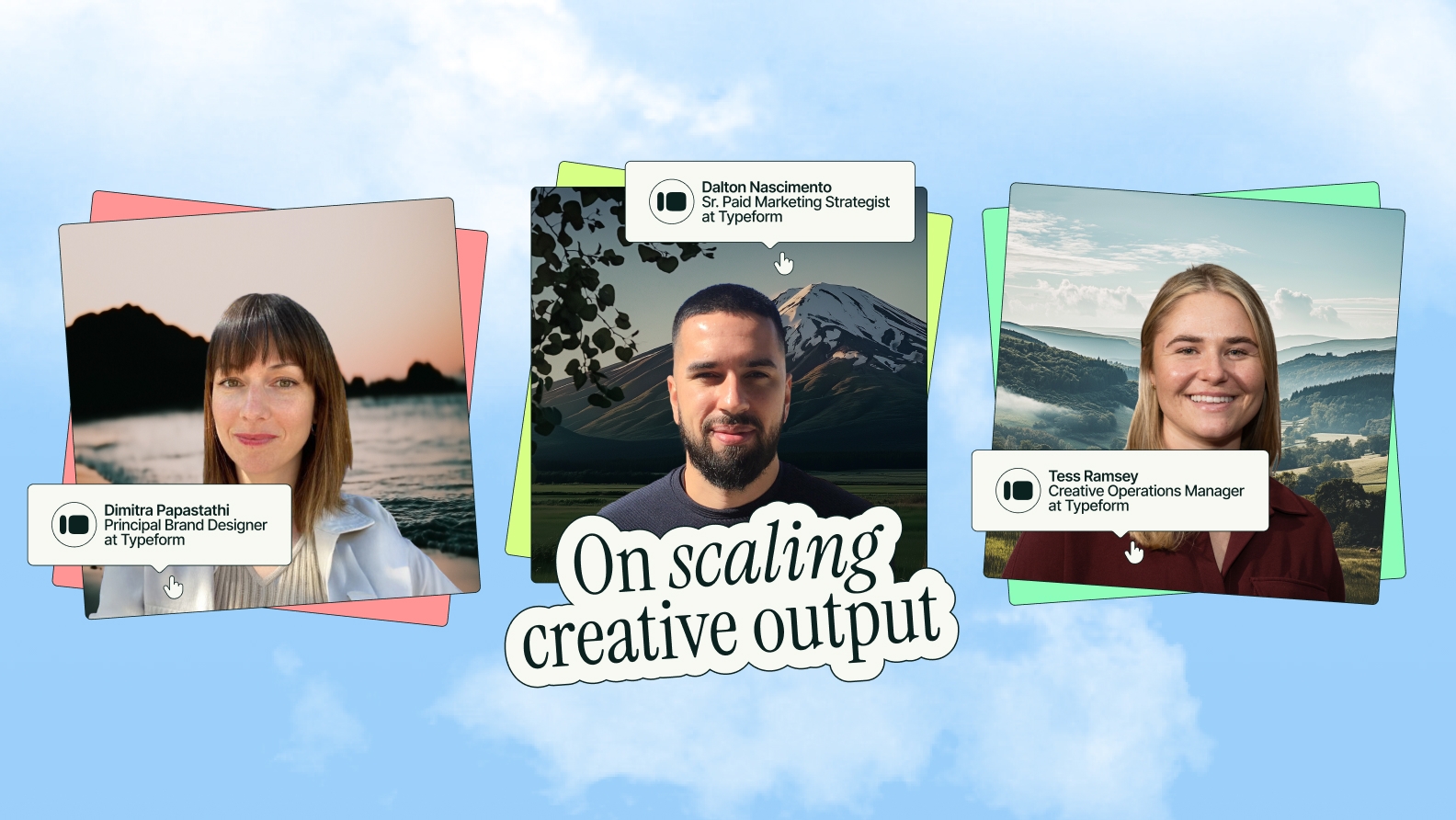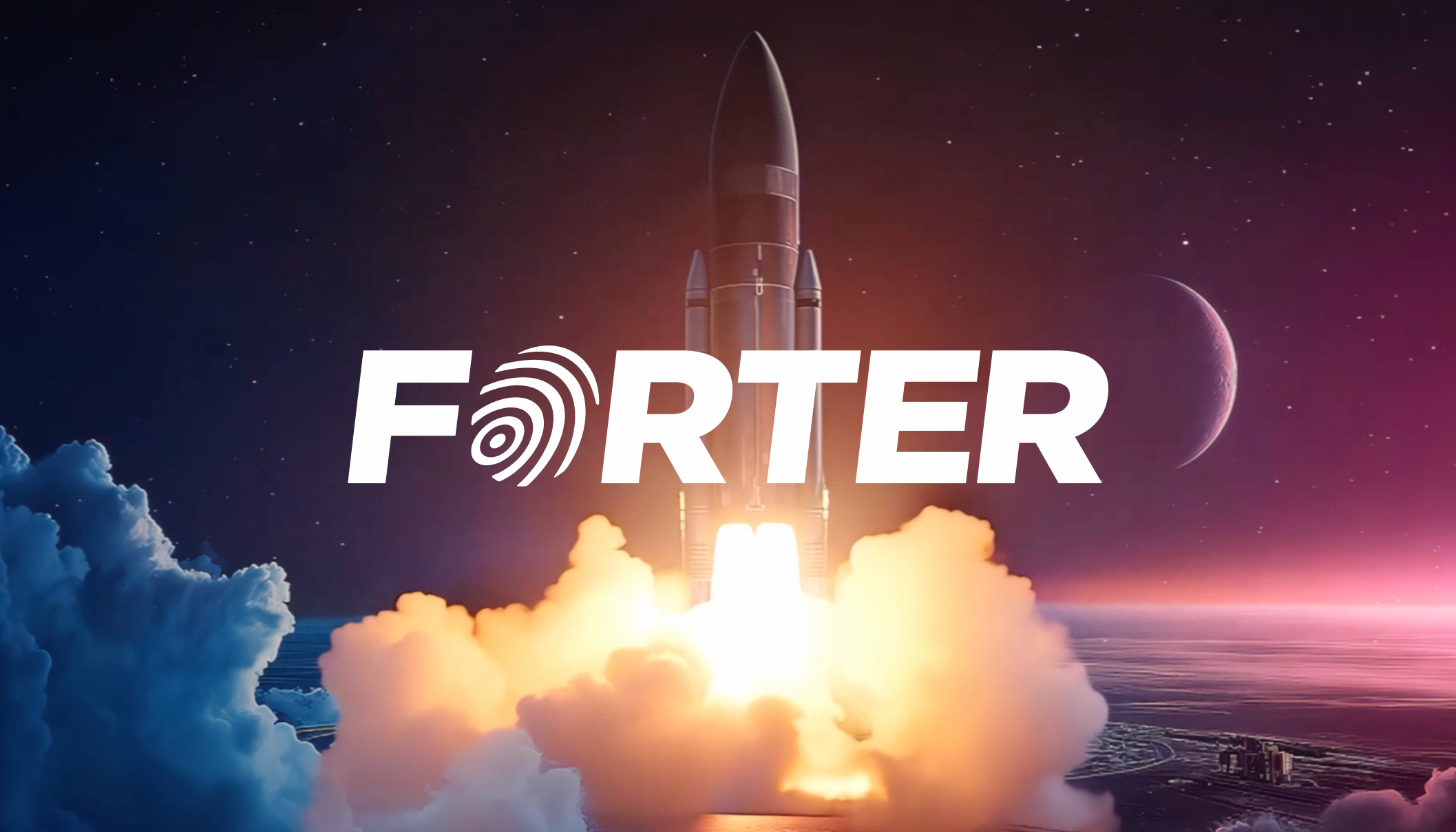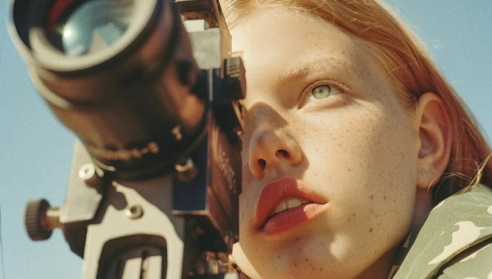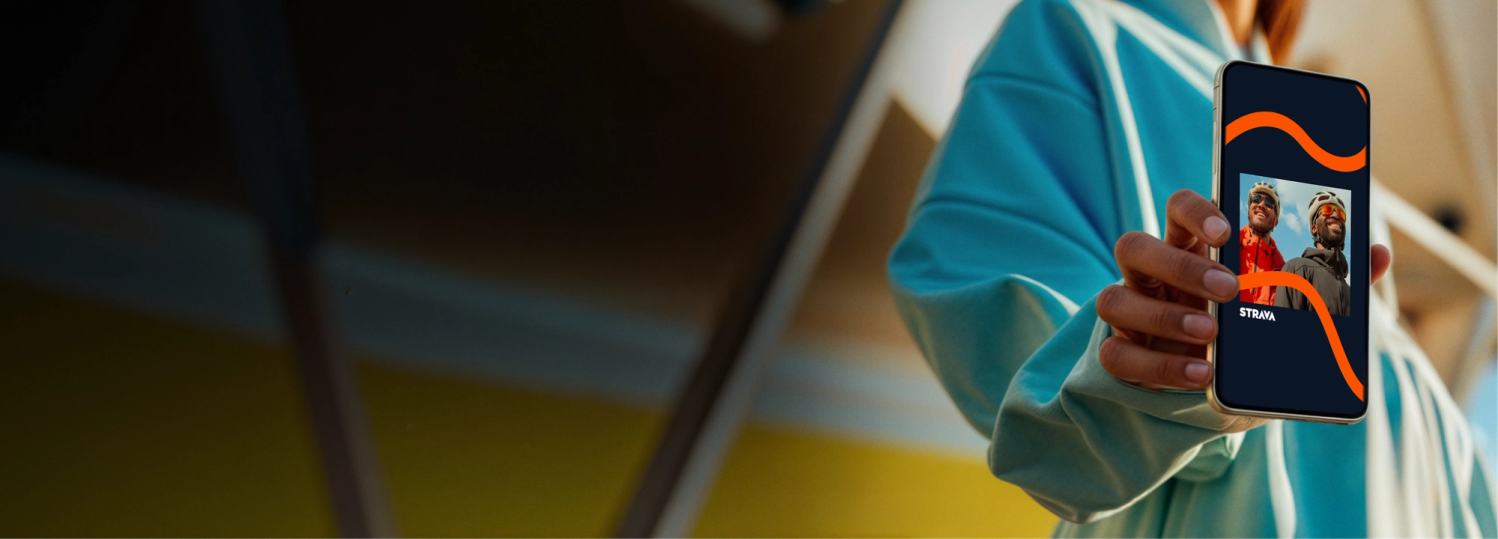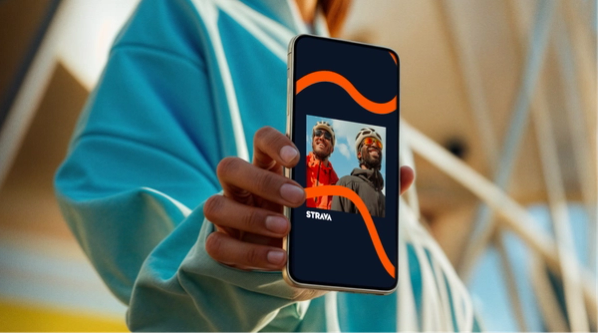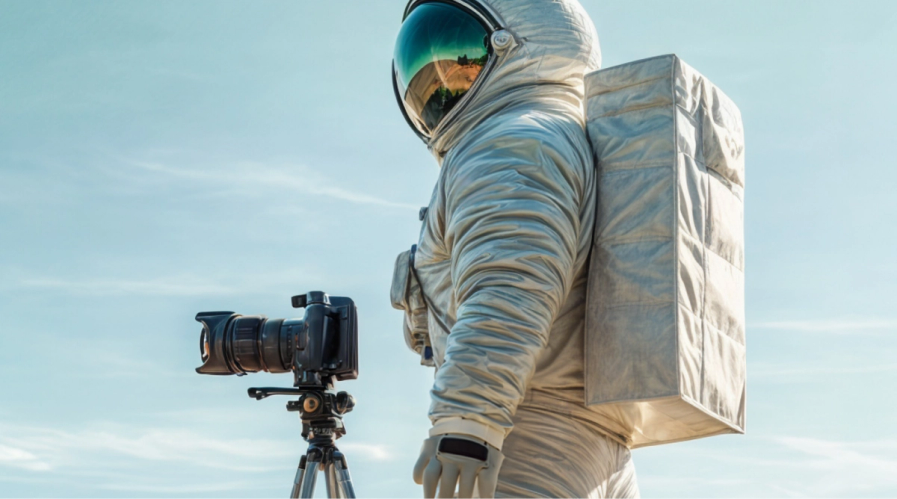7 short-form video trends to maximize impact in 2025

Looking to tap into the power of short-form video? Get to know this year’s key trends—including plenty of data, examples and expert insights from Superside’s AI-powered video team.
Short-form video’s popularity is skyrocketing. Thanks to the likes of TikTok, Instagram Reels and YouTube Shorts (and our diminishing attention spans), the way people consume media has shifted dramatically. These days, people crave bite-sized, engaging snippets of content that entertain, educate and connect us.
Short-form video ticks all these boxes. This is why brands are tapping into the format for its high shareability and potential for rapid audience growth like never before.
Ready to ramp up your short-form video content? Our end-to-end video services help enterprise brands with everything from strategy and concept to production and iteration—all while leveraging the benefits of AI whenever it’s a fit.
Where should you start? Right here. Explore the seven trends in short-form videos shaping 2025 with Superside's Video Production Director, Ashlee Fitzgerald.
The rise of short-form video
First, what is short-form video content? Most sources agree it’s video content that’s no more than 90 seconds long. (Dynamite comes in small packages.)
More than a fleeting trend—short-form video is a crucial connection to today’s fast-paced, attention-starved audiences.
The following short-form video statistics prove it:
- 80% of online traffic comes from video views.
- American adults spend an average of 58 minutes (nearly an hour) on TikTok every day.
- 50% of TikTok users bought something after watching TikTok LIVE.
- Videos shorter than 60 seconds make up 57% of total YouTube views.
- 87% of marketers report a direct increase in sales through video.
- 73% of consumers prefer to watch a short-form video to learn about a product or service.
What’s more, according to HubSpot’s State of Marketing Report, marketers use short-form video more than any other format. Short-form video also has the highest ROI compared to other marketing trends, with 67% of social media marketers planning to invest in this format.
7 short-form video trends to watch in 2025
Curious to learn more about what’s winning hearts and moving needles? Ashlee Fitzgerald, Superside’s Video Production Director, shares her insights on the seven short-form video trends marketing and creative leaders should know.
1. AI-powered short-form video
As effective as video content may be, it can also be time-consuming and costly to produce—creating a barrier to entry for many brands.
Enter artificial intelligence (AI) for short-form video production. As technology and expertise advance, the opportunities for both productivity and creativity gains also increase. There are many ways (and growing) to integrate AI into video workflows. Existing audio, video and text can be used to create original video content. Then there’s ideation, script writing, storyboarding, filming, editing, transcription and more.
AI is making it easier to generate high-quality content quickly and adding new creative possibilities. This means more time for creativity and less time spent on technical details.

What does this mean for businesses and brands? In addition to potentially massive cost and time savings—it also opens the door to many new opportunities.
AI is changing the short-form game in so many ways! It has a huge impact on faster turnaround and it’s breaking a certain barrier to entry. We’re also watching it level up existing content in the paid area: Seamlessly bringing motion and dynamic visuals to previously static posts, which is pretty exciting.

Before going into our own proof points, we wanted to share the story of Synthesia, a leading AI video communications platform. They’ve found that integrating AI into video production workflows saves up to 80% in time and budget. Check out a few more of their AI-powered video success stories:
- Teleperformance, a top global provider of outsourced omnichannel customer experience management, reports saving $5,000 and five days per video made using AI, compared to traditional video production.
- Ocado Group, one of the world’s largest online supermarkets, used AI to empower their employees to create customer training videos, resulting in more than 450 videos created by one team in a year.
- Europe’s biggest home appliance manufacturer, BSH, reports savings of more than 70% in external video production and 30% greater engagement with global supply chain training videos produced using AI.
Superside, AI and video services
As a leader in AI-powered creative services, Superside recognizes the power of AI in video production and the benefits it can bring to our customers. That’s why we’re continually mastering mature use cases and quickly adapting to what’s next. Our approach is about more than automation, it’s about empowering human expertise to elevate creativity and further strengthen video marketing strategies.
Human intervention has always been necessary to refine creative output into a polished final product suitable for public sharing.

Building a brand video in 5 days
When genome engineering company Synthego needed a brand video for an upcoming product launch, their partnership with Superside let them create a memorable result in less than five days—a nearly 40% gain in efficiency and $5,000 in costs.
2. User-generated content (UGC) is king
In today’s social media empire, UGC reigns supreme. Unlike influencer content, this type of content is created by a brand’s real customers and fans (who aren’t being paid to do so), which boosts the brand’s credibility and builds trust among audiences.
People crave authenticity and UGC delivers that in a bite-sized format. As shown in recent trends like de-influencing—due to how audiences resonate with genuine, relatable content.

Take a look at what a survey by UGC agency EnTribe, which included more than 1,000 participants, showed:
- 86% of respondents reported they’re more likely to trust a brand that publishes UGC.
- 81% said a brand’s use of influencers has either no impact or a negative impact on their perception of that brand.
- 83% would be more inclined to buy from a brand that used more UGC in its marketing.
- 90% reported purchasing a product after being influenced by friends or family.
- 80% of Gen Z respondents—TikTok’s largest demographic—said they’ve shared or would share content on social media.
In a recent HubSpot survey of more than 500 marketers who sell products or services on social media, 92% said UGC increases their brand awareness. Additional HubSpot research suggests that 40% of marketers rank UGC as a high-ROI format on social media.
From a psychological perspective, people are naturally drawn to seeing other people in content. It taps into our inherent desire for connection and relatability. Real people doing real things. That’s what we want to see and that’s what UGC is about.

Proving the power of UGC
On a mission to keep our ads fresh and our audiences engaged, we decided to play with UGC to promote our popular guide on the dysfunctions between marketing and advertising teams. The result was a 45-second ad (shot on an iPhone) that generated more than 4,600 clicks, 590,000 impressions and nearly 1,200 leads in just one month. Sounds unbelievable? Here’s how we did it.
This success was inspired by our initial testing of UGC-style ads. After experimenting with influencer video ads that had performed fairly well, our performance marketing team wanted to test how much influence the influencer really has over metrics. So they ran a similar campaign, but with a tweak: They removed the influencer and starred Supersiders. The in-house ad performed even better, with our cost-per-action (CPA)—in this case, demos booked—dropping by 30% compared to influencer content.
Clearly, showing our human side was working, so we continued to test how UGC-style content could improve campaign performance. Overall, UGC-style video has delivered a 217% increase in lead acquisition and cut our cost-per-lead by 45% month after month. Now, imagine what it can do for you.
3. Soundless optimization for no-audio scrolling
In an increasingly noisy social media environment, it’s not surprising audiences are opting more and more to watch video without sound.
Soundless optimization is a place where AI is shining! The ability to generate auto real-time captioning and translation on screen is a huge success.

A survey asking more than 5,000 participants which type of online ads they found most annoying found that 49% agreed that auto-play videos with sound are the worst.
Further research backs this up:
- Multiple sources suggest that 85% of Facebook videos, 80% of LinkedIn videos and 40% of Instagram videos are played without sound.
- According to Facebook, feed-based mobile video ads that play loudly when people aren’t expecting it trigger a negative reaction toward the platform and advertiser.
Sound off, visuals on
The rise in muted video consumption means strong visual storytelling has never been more important, especially for short-form video when every second matters.
Eye-catching, evocative elements like text overlays and subtitles, motion graphics and creative transitions help engage audiences—whether the sound is off or on.
Novel elements are content currency for views who want the information as quickly as possible, but not as predictably as possible.

Tasty serves up an irresistible example
Recipe videos are a great example of how to sound-free video creative right.
- They rely heavily on visually appealing, step-by-step demonstrations to convey each stage of the process.
- Close-up shots of ingredients, clear actions and well-paced sequences keep viewers engaged, while text overlays provide crucial information about ingredients, measurements and cooking times.
- Visual cues, like a sizzling pan or the transformation of food from raw to cooked, add to the appeal.
Tasty is a lesson in how to cause a stir online, one snackable video at a time. First launched as a Facebook page by Buzzfeed in 2015, Tasty quickly went viral with recipe videos that are easy to follow without sound. In December 2016, Tasty generated 1.4 billion video views, 1.2 billion of which came from Facebook.
Today, Tasty has more than 103 million followers on Facebook and 21.4 million on YouTube. Its “Four Ways to Make Anything” series is among its most popular, with each of these short videos getting tens (sometimes hundreds and millions) of views, all without the need for sound.
4. Behind-the-scenes (BTS) content to build community
Who doesn’t love a peek behind the curtain of their favorite brand? While it may feel scary for a business to reveal its inner workings, showing the human side of a product or service fosters trust and relatability among audiences, which in turn helps build brand awareness, loyalty and community.
People want to see the unseen. Companies can really tap into this world easily since the setup is already there during production—it's just about planning to capture that phase of content.

The power of connection
Authenticity shows that a business cares about its industry and those involved with it. When done well, BTS videos create a sense of belonging and shared interest. In fact, connection is something 78% of social media users want. A reported 70% of those surveyed said they felt more connected to brands whose CEO is active on social media, while 65% said seeing a CEO using social media regularly makes it feel like real people run the business.
Bringing the customers behind the curtain includes them in what the brand has done—making them equal and enhancing brand trust. This transparency fosters a stronger connection and deeper engagement—along with being entertaining!

As brands lean into building communities, having a big, happy community is about more than increasing leads or prospects. Connection comes from showing that a business provides people with a sense of belonging and shared interest.
Behind the scenes with Pernod Ricard
Quick, low-cost, unpolished clips—showing anything from key moments in product development to team get-togethers—are highly shareable.
With Superside’s creative experts by its side, Pernod Ricard USA realized the power of BTS video content—sharing a glimpse of how the photo shoot for its BarTrendr Magazine came together. For very little cost, capturing what was happening during the shoot also became a valuable marketing asset. Cheers to being resourceful and authentic!
5. Brand challenges continue to rise
The ALS Association’s #IceBucketChallenge of 2014 flooded social media feeds with videos of people dumping buckets of ice water over their heads for a good cause. The result: more than 17 million people participated, raising $115 million for research and creating one of the most successful viral campaigns in social media history.
In 2020, Nike launched the #PlayInside challenge in response to the pandemic and worldwide lockdowns. The challenge encouraged people to stay active indoors and featured athletes and users sharing creative ways to exercise at home. Aligning with Nike’s values of fitness and perseverance, the campaign resonated globally at a time when safety and well-being were top of mind.
Widespread participation in the challenge helped Nike maintain strong engagement and relevance during a challenging period for many businesses and brands.
The facts support the fun of brand challenges
The success of brand challenges lies in their ability to harness the power of social media virality, so it’s no surprise that this trend continues to grow within short-form video. Audiences love to be entertained in just a few seconds and, as research suggests, are 97% more likely to purchase something from a video ad they’ve enjoyed watching.
According to HubSpot research, 20% of marketers have leveraged brand challenges, and 42% said they performed better than expected. TikTok is making it easy for brands to create videos featuring brand challenges with a specific category of ads called Branded Hashtag Challenges.
The US division of fashion giant GUESS was the first brand to partner with TikTok in a six-day campaign using a TopView TikTok ad format. With the campaign, every TikTok user in the U.S. would be sent to the brand’s #InMyDenim hashtag challenge when they opened the app. It shot the lights out for GUESS, getting more than 38 billion views.
6. Stories take center stage: Short-form video on social media
There’s no doubt that Stories is the star of the social media show: More than 500 million people use Instagram Stories and 300 million use Facebook Stories each day. It’s a great feature on Meta and other platforms that can help ensure your target customers watch videos intended to pique their interest in your brand.
Introduced by Snapchat and popularized by Instagram, Facebook and WhatsApp, the social media story is perhaps the ultimate in bite-sized content and the ideal home for short-form video. On most platforms, posting long-form videos simply isn’t possible.
This quick, temporary (usually with a 24-hour lifespan) format taps into users’ FOMO (fear of missing out), creating a sense of exclusivity and urgency to engage with the content before it disappears. Audiences are also more inclined to watch a story to the end. For example, Instagram Stories have an average monthly completion rate of 86%.
The appeal of Stories lies in their authenticity
They often showcase highlights, unpolished BTS glimpses and real-life moments, fostering a sense of intimacy and relatability. For brands, Stories are a powerful way of maintaining visibility, engaging with audiences and combining promotional content with genuine interaction. According to Instagram, 50% of users have visited a website to buy a product or service after seeing it in an Instagram Story.
Interactive features like polls and quizzes in Stories have the potential to make viewing a dynamic experience, providing instant feedback, sparking discussion and creating a sense of brand community by involving the audience in decision-making processes or testing their knowledge. These features offer valuable insights into consumer preferences and behaviors while keeping content fresh and engaging.
Helping Reddit share a Story
When Reddit joined forces with Superside to recreate some of the platform's most iconic memes for a B2B social media campaign, select clips were used as sponsored Instagram stories that clicked through to full case studies—driving prospects from awareness to conversion.
Key takeaways on short-form video and Stories
It only makes sense, for example, to crosspost your bite-sized videos in the form of Instagram Stories to Facebook (Meta frequently leads in terms of short-form video trends). But note that many features can’t be carried across. Meta provides a useful table of features you can check out.
7. Influencer videos to reach new audiences
Love them or loathe them, influencers are here to stay, with an estimated 70% of U.S. consumers actively following them. And because our attention spans are officially lower than that of goldfish, we need influencers to hurry up and show us something we like, or we’re moving on. It’s easy to see why short-form video will continue to be integral to brands’ influencer marketing strategies.
Influencer marketing is not one-size-fits-all. Influencers need to align naturally with your brand and audience to be effective. If they feel relevant enough to collaborate, then they can showcase a huge success.

And with TikTok reportedly the most-searched-for short-form video platform globally, it’s also no surprise that this is where influencers will have the most impact.
The research also shows:
- Nearly one in four people say TikTok's short-form content influenced them to purchase within three minutes of first seeing it.
- 51% of people named TikTok’s short-form content as their top influencer for impulse buys.
What’s more, HubSpot reports that 88% of companies using short-form video in influencer marketing say it’s effective, and 55% say they’ll be investing more in it going forward. Influencers also play a key part in shaping the world’s short-form video trends.
Going the UGC route by filming with a content creator allows for more meaningful interactions to take shape from the brand voice directly—without your audience feeling like you've thrown a 'celeb' at them without cause.

Inspired by this approach, Superside helped Suzanne Kalan deviate from the traditional influencer model, which can dilute creative control and brand identity. Instead, they focused on finding professionals with a social presence who could embody Suzanne Kalan's brand values. Completed in under a month, the project resulted in a 5,124% increase in TikTok views within three weeks.
What’s next for short-form video?
The rise (and rise) of short-form video looks set to continue, as people continue to share video twice as much as any other type of content.
The explosive growth of TikTok, Instagram and Facebook Stories and Reels and YouTube Shorts demonstrates the increasing consumer demand for short, vertical videos:
- According to Meta, more than 200 billion Reels are currently played across Facebook and Instagram each day.
- TikTok is expected to surpass 1.8 billion users by the end of 2024. Short videos remain the juice that fuels this machine.
- In the United States alone, there’s currently an estimated 164.5 million YouTube Shorts users.
Watch for new platforms
The emergence of new platforms and technology will also help short-form video remain at the forefront of online marketing for the foreseeable future.
While not a new player in the short-form video game, music video app Triller is one to watch. It could fill a gap for users in countries where TikTok may be on the chopping block.
Short-form video innovations are democratizing content creation—letting more people bring their ideas to life—and to share them! As more platforms, like Triller, emerge, competition will drive innovation—pushing other platforms to enhance features and UX.

Mastering machine learning
Machine learning is poised to significantly disrupt the video marketing industry by personalizing content delivery, enhancing user engagement and automating some video production processes. More than ever, marketers need a partner who can leverage both AI and video production to beat their brands’ competitors by using short videos.
However, it's not just about having access to these tools—it's about using them effectively.
Video AI and curation platforms will highlight creators who can master the art of prompting and storytelling. This will foster a community of highly skilled creators—and brands will need to engage with this talent pool to stay relevant and ahead of the curve.

Capitalize on the short-form video boom with Superside
Short-form video is on the rise. So are the possibilities for taking advantage of this trend. AI is lowering the barriers to entry and creative partners, like Superside, offer effortless, scalable, modular video production that lets you get high-quality video assets on-brand and on time—every time.
Meet Roger, a content marketer driven by his love for online search, digital marketing, and performance marketing. When he's not immersed in the latest updates on Google, AI and social media, you'll find him passionately crafting strategies to simplify online searches for people, sparing them the frustration of navigating through endless pages. As a marketer, Roger Match has turned into the perfect match for Superside, helping us showcase our purpose, objectives and essence to the world.
Ashlee is Superside’s Production Director. She built the video team from the ground up and leads remote creatives across the globe—delivering high-quality content fast with a hands-on, tech-savvy approach to video that scales with enterprise teams.
You may also like these
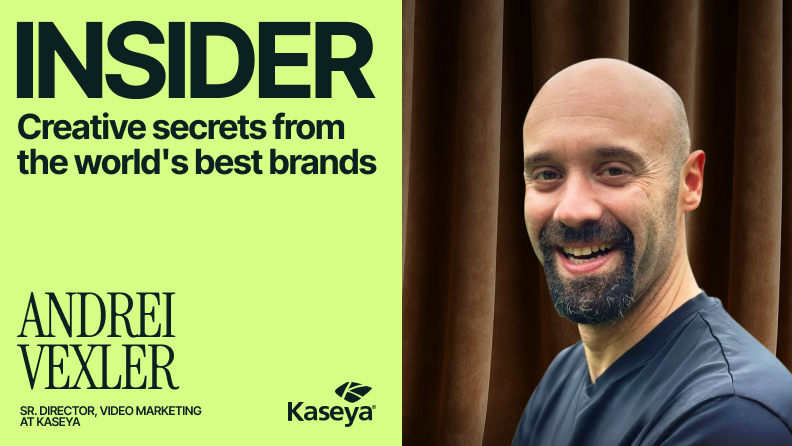
From projects to programs: Building scalable, strategic video programs
In an era where video is one of the most powerful tools in a marketer’s arsenal, too many teams still treat it like a one-off deliverable. They respond to scattered requests, chase vanity metrics and end up stuck in a cycle of reactive production. But what if video could do more—much more?Andrei Vexler, Senior Director of Video Marketing at Kaseya, focused on this topic during Superside’s Insider Summit. Vexler drew on decades of experience across agency and in-house roles to show how a video strategy can evolve from a cost center to a growth engine. Through stories, frameworks and tactical advice, he outlined a model where video becomes a scalable, strategic function deeply tied to business outcomes.What follows are the key insights and lessons from his session—ideal for creative leaders, marketing strategists and anyone tired of chasing views without seeing results.Creative teams are not just service providers—they’re growth driversOne of the central themes of Vexler’s talk was a direct challenge to the traditional, transactional role of creative teams in marketing organizations. Too often, creative teams fall into reactive “order-taking” roles, fielding ad-hoc video requests without understanding—or owning—the business impact.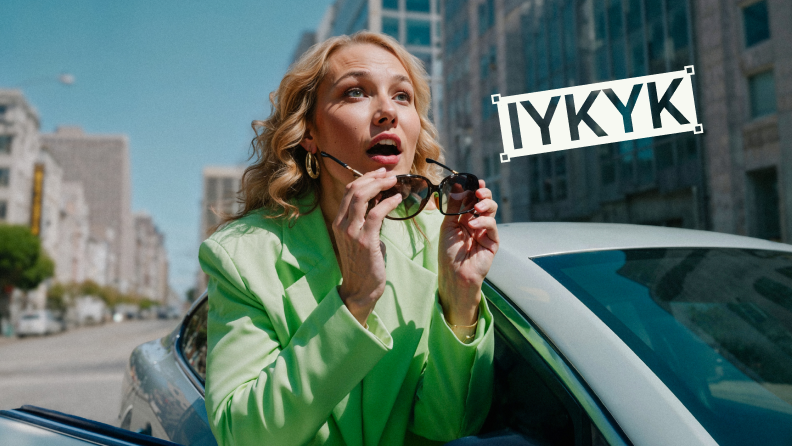
Behind the scenes: Making a head-turning video with AI
You need more video and you need it fast… and cost-effectively… and like yesterday! Can AI really help? What’s it good at—and how can you ensure consistent quality?Demand for video keeps increasing, with 95% of marketers considering it a strategic imperative. Similarly, 96% of creative leaders realize that AI will help everyone get to market faster. The biggest barrier to both: Not knowing where to start. When time, money and talent are already spread thin, one of the quickest (and most inexpensive) ways to amp up your AI and video expertise is learning from others.That’s why Superside’s Director of Brand & Marketing Creative, Piotr Smietana is helping us share the story of how we created our Q2 2025 campaign video—so you can see where AI helped us work more efficiently, what’s coming next and how human creativity will always lead the way.Backstory: How AI got the gig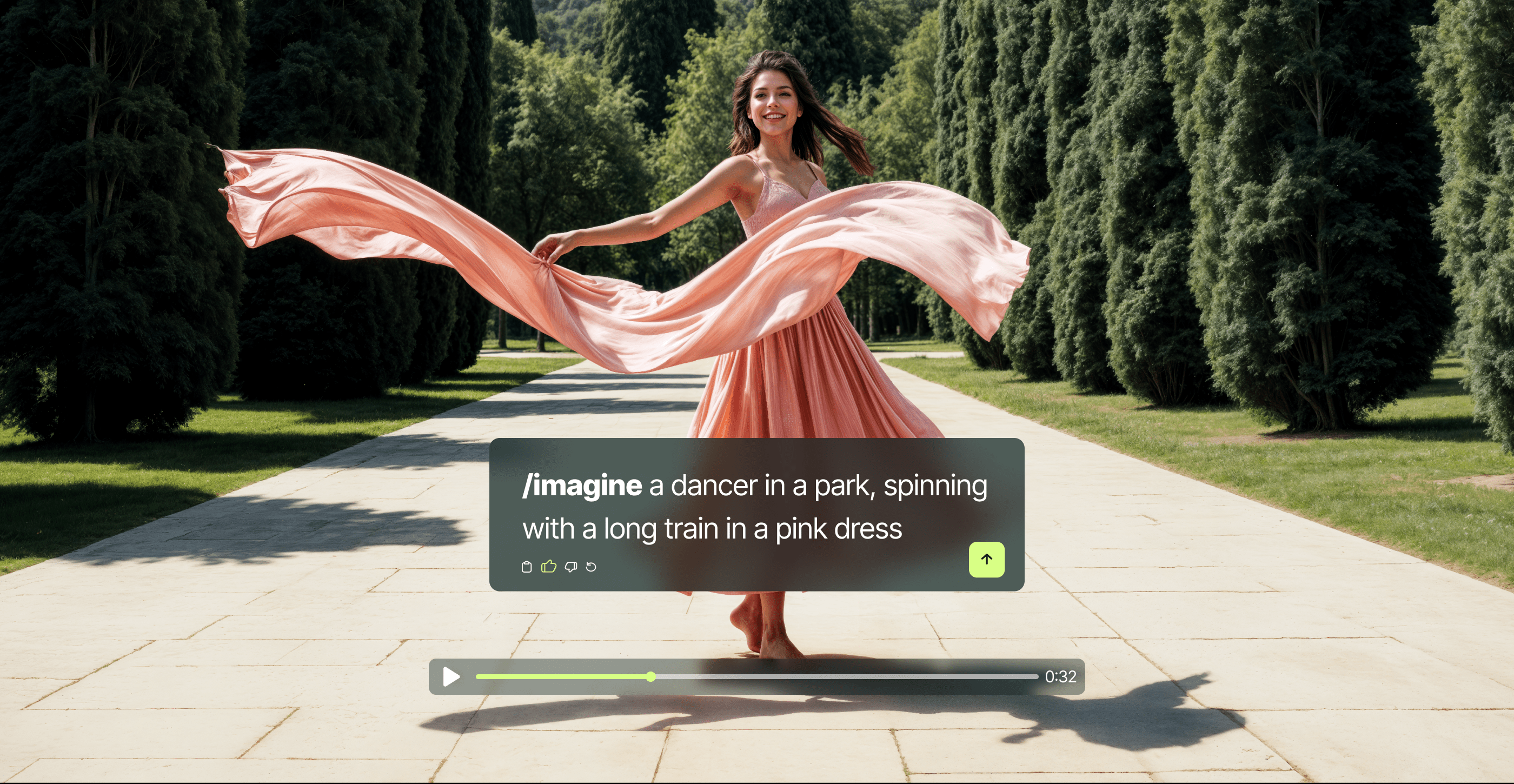
10 best AI video generators for top creators in 2025
AI video is no longer slop. And every day is becoming way more professional than before. Today’s AI-powered video tools bring unprecedented speed, creative range and the ability to personalize your video campaigns at scale.But it has to be well-produced to work for your teams.Today, most creative teams are still in the early stages of AI adoption. While many use AI for tasks such as idea generation (e.g., to revamp their social media posts or create more effective ads), the real competitive edge comes from the deep integration of AI into the video production process.There are excellent AI tools available to assist, but beware: Most aren’t designed for the demands of enterprise teams and still fall short in terms of accuracy and professional video quality. Also, some don’t allow you to choose or customize the AI model, which limits flexibility and features.So, how do you choose the perfect video design service or AI video tool for your business? Sit tight. In this article, we take a clear-eyed, critical look at your options and list the top 10 best AI video generators in 2025, as well as five platforms well-suited to enterprises, to help you nail your creative goals.